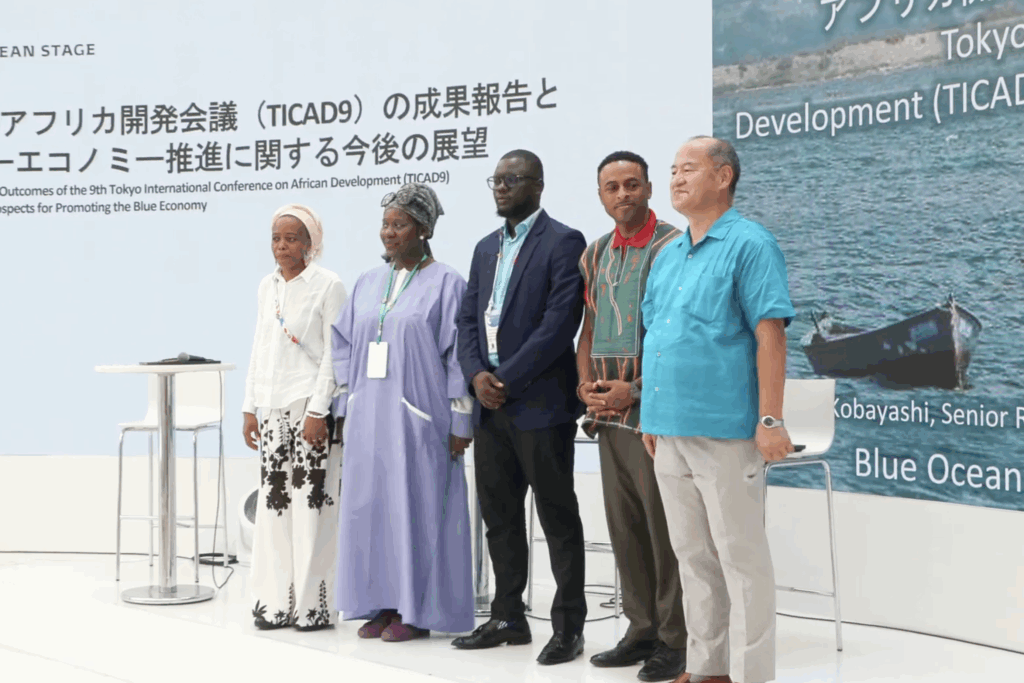
On Sunday, August 24, a lecture entitled “TICAD9 Results Report and Future Outlook” was held. The lecture featured speakers including Masanori Kobayashi of the Sasakawa Peace Foundation and representatives from West African countries, including Senegal, Nigeria, and Liberia. They engaged in a lively exchange of views on the potential of the blue economy (sustainable ocean economy) and the future of cooperation between Japan and Africa.
At the beginning of the event, Kobayashi reported on the results of the 9th Tokyo International Conference on African Development (TICAD9), held in Yokohama from August 20 to 22. The conference attracted a wide range of participants, including not only Japanese government officials but also African leaders, business leaders, and civil society groups, and promoted exchanges in a wide range of fields, including investment, trade, and technical cooperation. He explained that the “Yokohama Declaration,” which was ultimately adopted, outlined new cooperation guidelines between Japan and Africa, including sustainable economic growth, human resource development, and marine resource conservation.
In the following talk session, young leaders from African countries shared their respective countries’ current situations and challenges. Ibrahima Faye, a program officer with ADEPME in Senegal, and Maimouna Mbaye, a member of the Senegalese Chamber of Commerce, noted that while their country possesses abundant marine resources, it faces a lack of technology and funding. “In our country, we are supporting the fisheries and processing/distribution industries, primarily small and medium-sized enterprises. We would like to work with Japanese companies and organizations to develop these industries into higher-value-added industries.”
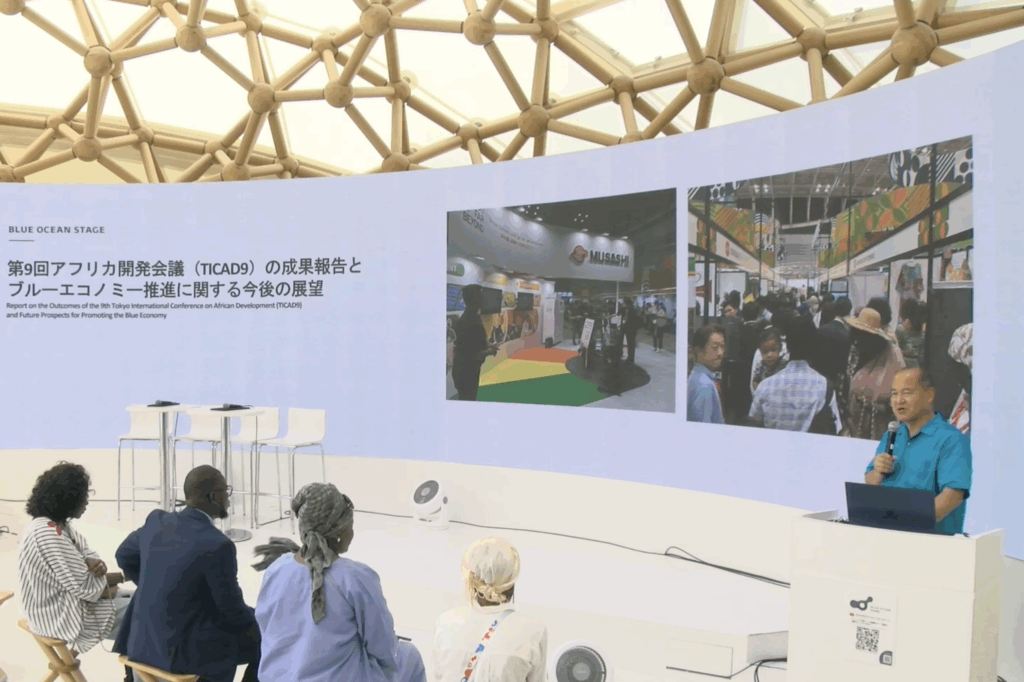
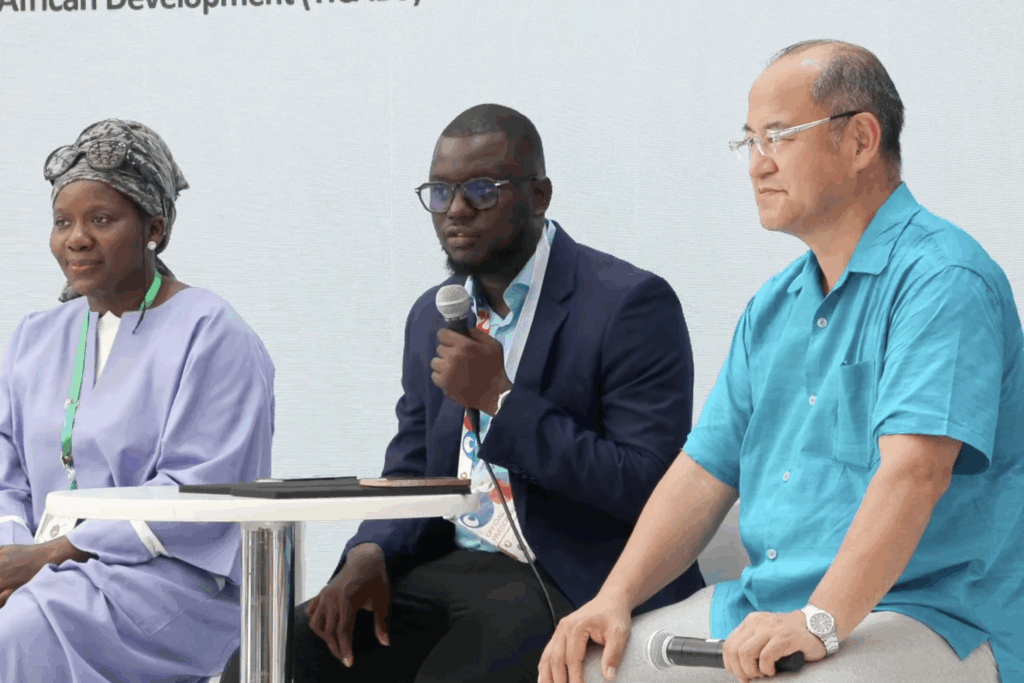
Eldou Paula Awai, a Nigerian graduate student at Osaka Municipal University, emphasized the important role the blue economy plays in food security and poverty reduction. Mr. Eldoo stated, “Many people in Nigeria depend on marine resources, and there is much to learn from sustainable natural resource management concepts like Japan’s ‘Satoyama Initiative.'” He emphasized the need to build systems that foster mutual prosperity for both people and the environment.
Mr. Abbas Lakis, Business Development Specialist at the Liberia Business Association, said, “Understanding social dynamics is essential” when considering local economies, and pointed out that traditional wisdom in areas such as agriculture and fishing can hold clues to sustainable development.
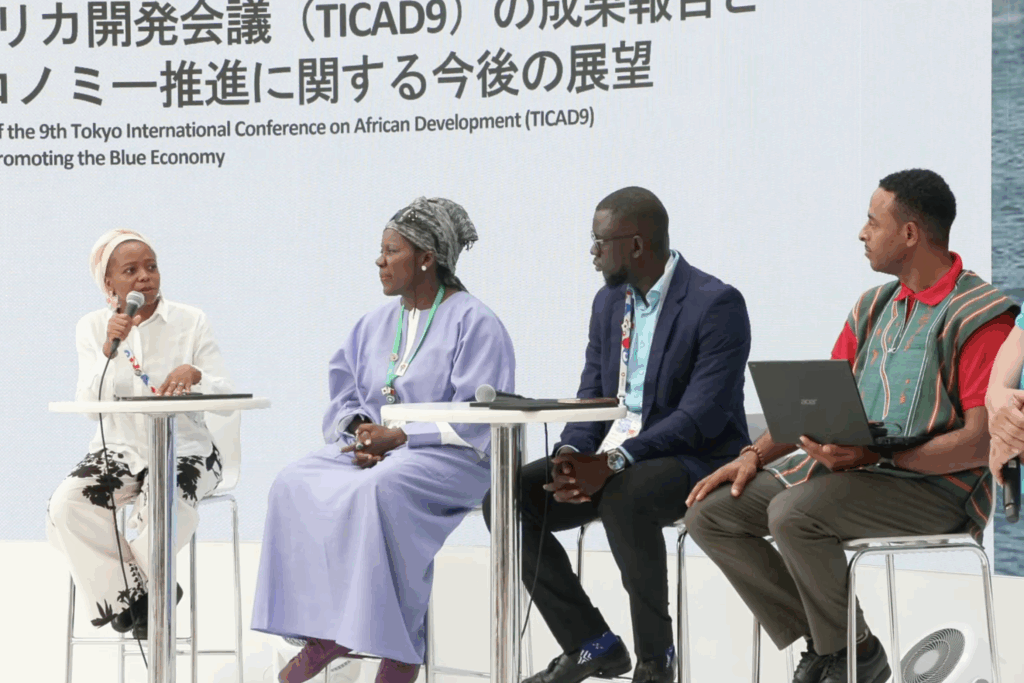
The second half of the event also focused on the worsening problem of plastic pollution in African countries. Speakers discussed the potential for the creation of new industries by combining Japan’s advanced recycling technology with the creativity of young African people. He noted that young entrepreneurs in Nigeria have already begun reusing plastic waste to manufacture furniture and accessories. Mr. Eldoo emphasized that human resource development through technical cooperation is key to addressing both environmental issues and job creation.
Towards the end of the discussion, the need for collaboration from the perspective of “peace and security” was also discussed, with the speakers emphasizing the importance of partnerships through the development of social infrastructure, including governance, education, and maintaining public safety.
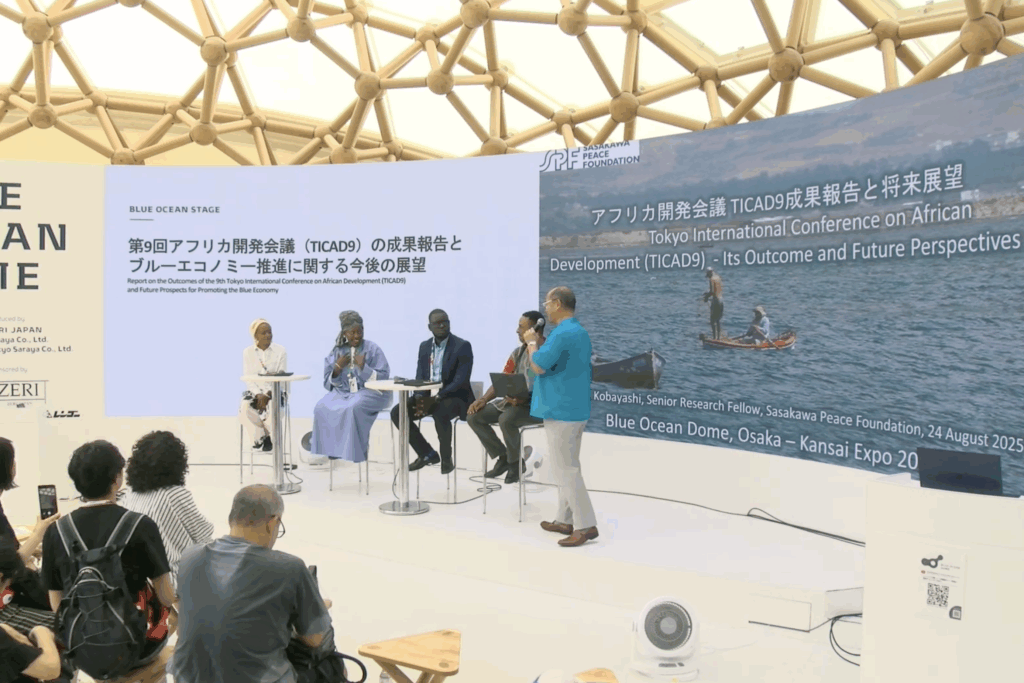
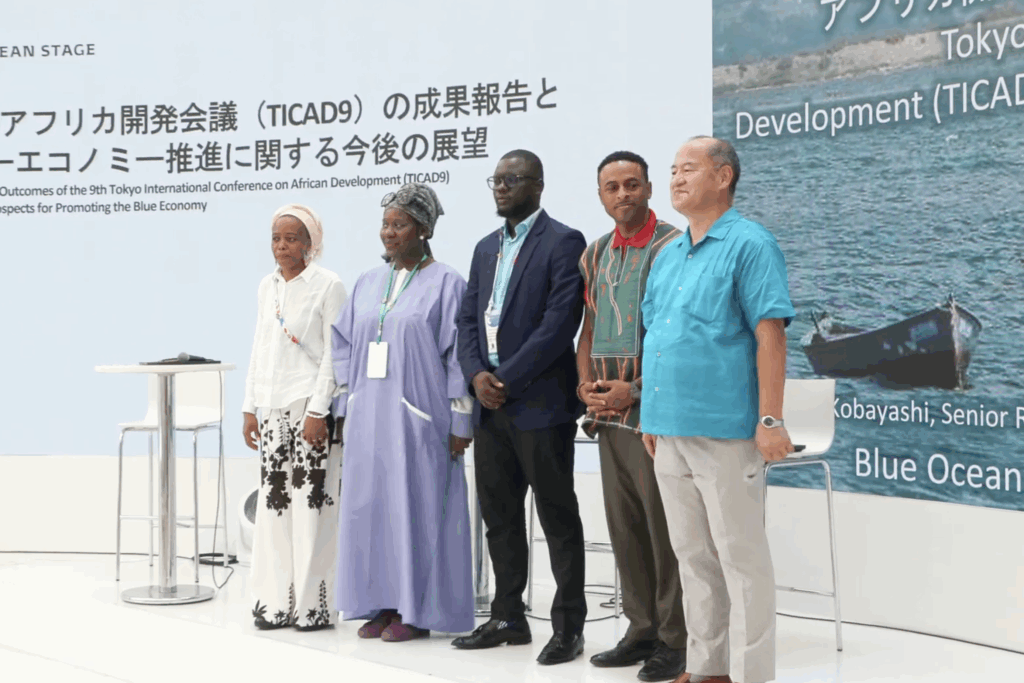
▼A recording of the event is available on the BLUE OCEAN DOME official YouTube channel. Please take a look.
【#104】TICAD9 Special Seminar: Tokyo International Conference on African Development, TICAD9 Results Report and Future Outlook (ZERI JAPAN/Sasakawa Peace Foundation)